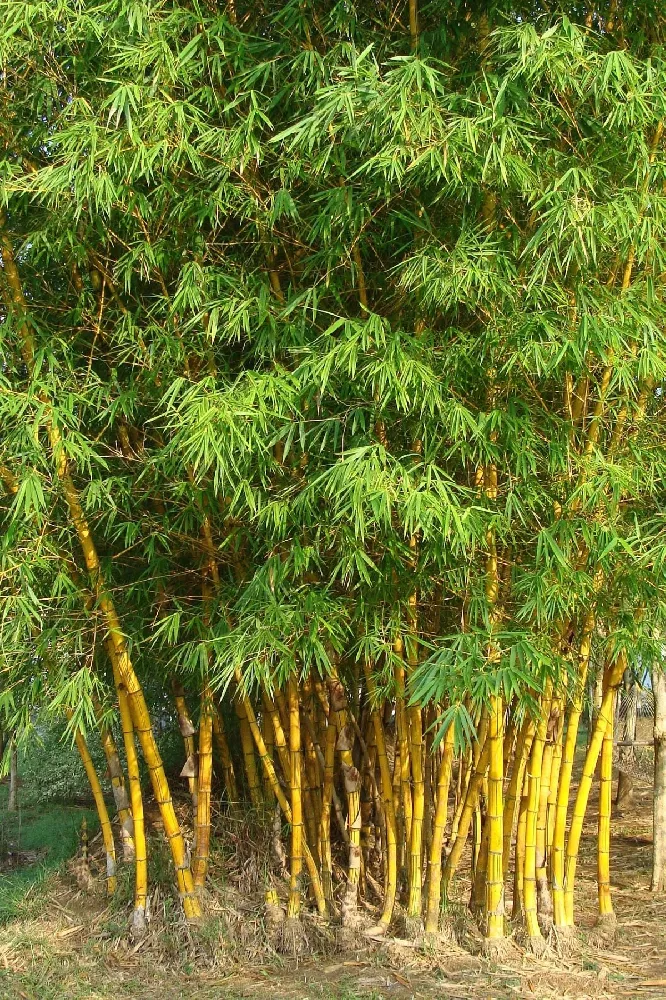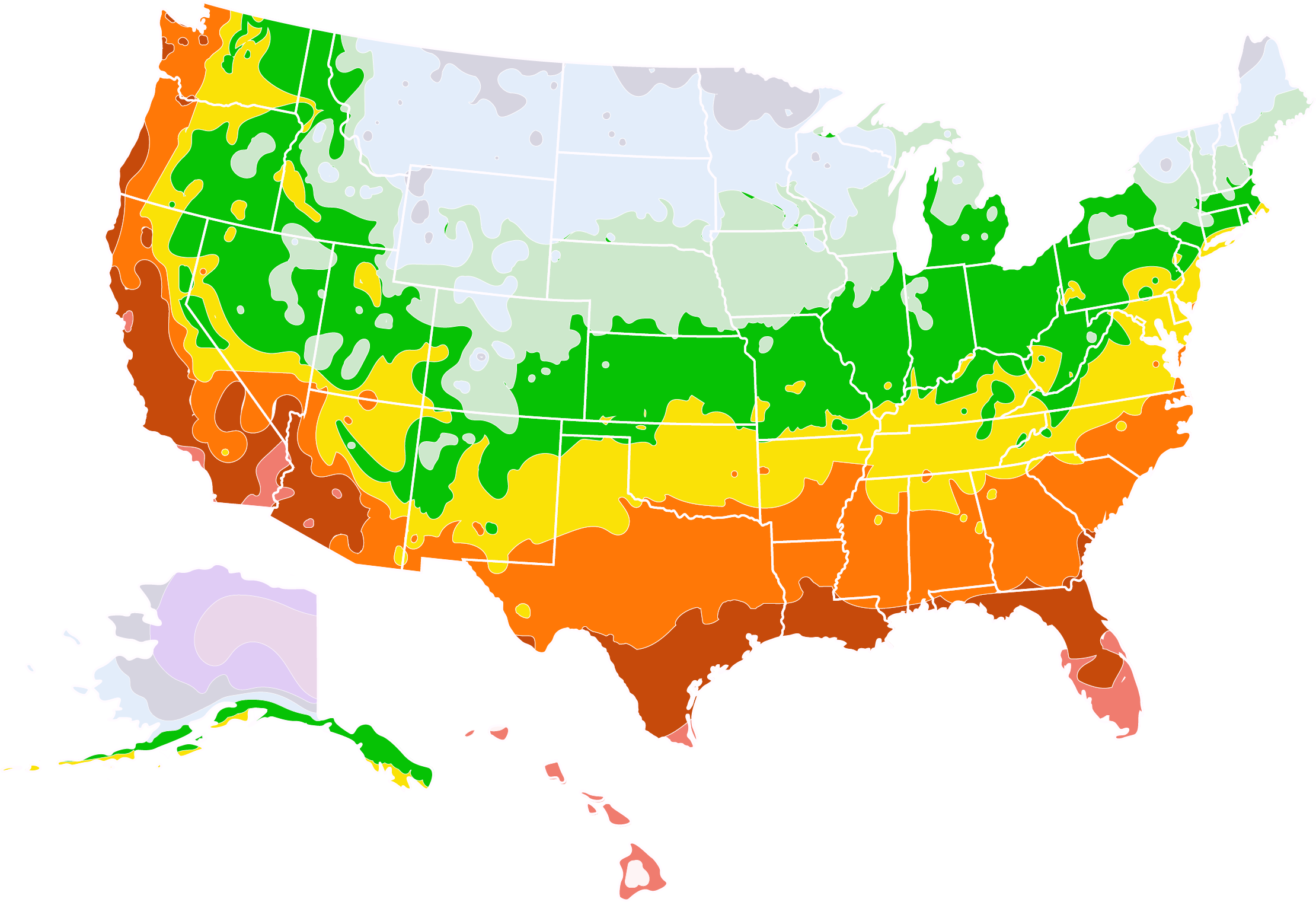- Home >
- Privacy Trees >
- Golden Bamboo
Golden Bamboo for Sale - Buying & Growing Guide
- Ships in 1-2 days
- 1-Year Warranty Eligible
- Pots or accessories are not included unless specified in the product options.
Shipping Details:
Once your order is shipped, you’ll receive an email with a tracking number and estimated delivery date. Most orders ship immediately, but some items are seasonal and may only ship in spring or fall. These products are noted on the website.
When choosing a bamboo species for your garden, the golden bamboo plant, or Bambusa multiplex 'Golden Goddess,' is as valuable an option as any other variety. Like most bamboo plants, golden bamboo grows tall and fills in quickly to create a consistent privacy screen wherever you choose. This bamboo is also exceptionally dense, even compared to other bamboo plants, which ensures complete seclusion once it has grown in. Golden bamboo is also adaptable, surviving in full sun and partial shade, containers, and in several regions, including hardiness zones 6 through 10.
- The golden bamboo plant is fantastic as a tasteful privacy screen.
- It fills in quickly.
- It has dense foliage consisting of long leaves with jagged margins.
Plant Care
Sunlight
The golden bamboo plant may survive in partial shade, but full sunlight is best.
Watering
Maintain consistent soil moisture. Water about once per week during the spring, summer, and fall.
Fertilizing
Fertilization needs are low. Consider feeding once annually with a balanced fertilizer blend.
Planting and Care
Planting instructions
Golden bamboo enjoys a growing location that has moist, well-draining soils and full sunlight. This plant can survive in partial shade, too, but is often less vigorous in those settings. You also have the option of growing your golden bamboo either in the ground or in a container. If you choose to use a container, ensure that it is one with great drainage and plenty of room for your golden bamboo plant’s roots. Also, since golden bamboo spreads quite quickly, you’ll likely need to transplant it from its original container to a larger container relatively soon.
Watering and nutrients
The golden bamboo plant performs best in soils that are not entirely wet but do remain consistently moist. This is especially crucial when this plant is young and trying to establish itself. During the warmer months, you can expect to water this plant about once per week or more based on how quickly the soil dries out. You may also choose to fertilize this plant, but it is often not necessary. Those who do choose to fertilize should do so once per year with a general-purpose fertilizer.
Pollination
The golden bamboo plant does not produce a harvest of edible fruits, which makes pollination a topic of little or no concern for gardeners who raise this plant. Likewise, while this plant does produce flowers, they are of no ornamental value, and you may not notice them at all. Those flowers serve an entirely functional role. Typically, they spread their pollen via wind currents, but there are some insects that may aid in pollen transfer as well.
Pruning
We cannot understate the need for consistent pruning when caring for a golden bamboo plant. Like most bamboo varieties, golden bamboo is known to spread quickly and somewhat aggressively wherever it finds favorable growing conditions. That aggressive spread makes it likely that your golden bamboo will compete with other plants in your garden when given a chance. It is permissible to prune this plant at just about any time of year. When pruning, you should focus on removing entire canes rather than shortening individual canes.
Pests, diseases, and animals
When growing a golden bamboo plant, it is likely that you won’t need to worry about pest and disease issues at all. Among all bamboo varieties, the golden bamboo cultivar is one of the best at resisting both infection and infestation. However, those complications remain a possibility, especially when this plant grows in a sub-optimal growing location or has received damage or improper care. In those cases, sooty mold and mealybugs are the most common sources of harm for this plant.
Achieving maximum results
Part of what makes choosing a bamboo plant so difficult is that there can be multiple types of bamboo that go by the same common name. For example, there is more than one plant that goes by the name golden bamboo. One such plant has the botanical name Phyllostachys aurea and is an invasive plant that you should typically avoid. By contrast, the cultivar Bambusa multiplex ‘Golden Goddess’ also goes by the name golden bamboo but is not nearly as invasive. Be sure you have a firm understanding of that difference before you introduce a golden bamboo to your garden.
FAQs
Is golden bamboo a running or clumping bamboo?
The golden bamboo variety known as Bambusa multiplex 'Golden Goddess' is a clumping bamboo plant, which makes it far less capable of overtaking your garden. Clumping bamboos grow canes in close proximity to one another. By contrast, running bamboo plants send roots through the soil over relatively long distances, making it incredibly difficult for gardeners to control them. As such, it is wisest to choose a clumping bamboo plant for your garden, as they call for less maintenance and are less invasive.
Is golden bamboo invasive?
Bambusa multiplex 'Golden Goddess,' also known as golden bamboo, is not listed as an invasive species, as many other bamboo plants are. Part of the reason for this is that this golden bamboo variety has been specifically cultivated as a clumping plant that won't spread as quickly as true bamboo species. However, with that said, the golden bamboo plant does grow very fast compared to most other plants. So while it is not technically invasive, it is a plant that you should monitor and control as best you can.
How large does golden bamboo grow?
The golden bamboo plant has the potential to reach heights of 30 feet or taller. It does not take long for this plant to reach that height, as it has a rapid growth rate. However, the size of your golden bamboo can depend on its growing conditions. For instance, bamboo that grows in a container will often be smaller than bamboo that grows in the ground. The same slower growth may be present in bamboo plants that don't receive the proper care or growing conditions.
Compare Similar Products
You can't add more Product Name - Product size to the cart.
OK








